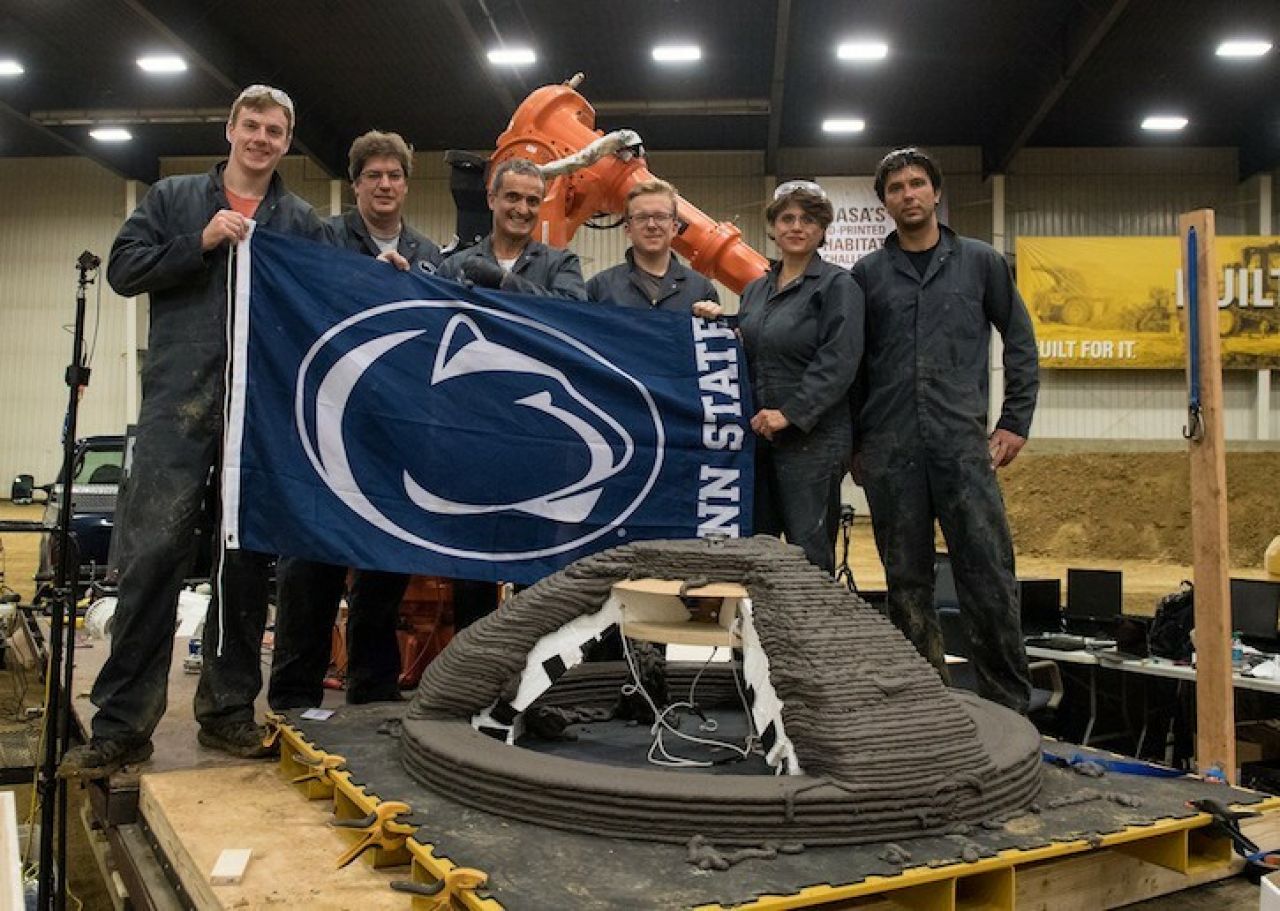August 30, 2019
Mars habitat 3-D printing team continues success in NASA competition

PennStateDen@Mars, an interdisciplinary research team competing in NASA's 3D-Printed Habitat Challenge competition, has placed second in the foundation construction stage of the compeition.
The second place finish in the second of five levels within phase 3 of the competition earned PennStateDen@Mars just less than $33,000 to be used for developing the technology that will propel the team through the two remaining levels.
The NASA 3D-Printed Habitat Challenge, a Centennial Challenges Competition, was initiated in 2015 and asks inventors to design a human shelter that can be 3D-printed on Mars using indigenous or recycled materials. The goal of the four-phase competition is to create an autonomous system that will someday be deployed to the moon, Mars, or beyond to construct shelters for human habitation.
PennStateDen@Mars entered the competition in phase 2, which required competitors to develop the fundamental 3D-printing technology necessary to produce a structurally sound habitat, including the printer itself and construction materials. In August of 2017, the team won second place in phase 2 and was awarded $150,000.
The team's design draws inspiration from vernacular architecture, but unlike traditional 3-D printing, which is based on horizontal layering, the design uses a brick layering concept to create a dome structure.
To finalize the most recent level of the competition, the foundation of the structure was evaluated and scored based on multiple criteria including strength, durability and material composition. To test the strength of the foundation, a standard Olympic shotput was dropped from a height of over 16 feet to simulate a meteor strike. The durability of the foundation was tested by subjecting the slab to freeze and thaw cycles, which demonstrated how the material performed in weather extremes.
"This level prepares the teams for more difficult levels to come, and they had to do it autonomously, which adds an extra level of difficulty that will be necessary for space exploration," Monsi Roman, program manager for NASA's Centennial Challenges said in a statement. "Each of the skills tested in these levels will come into play for the final competition next spring."
The third phase ends with an on-site competition in Peoria, Illinois, from April 29 through May 4, 2019. The winner of phase 3 will receive a $500,000 prize, second place will receive $200,000, and third place will receive $100,000.
